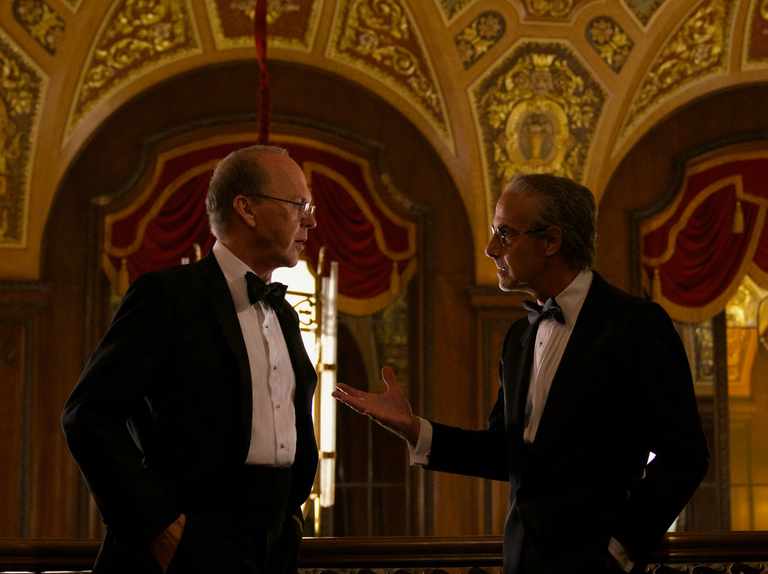Worth, a tear-jerking biography from Netflix, has finally arrived on the streaming service. The poignant judicial drama revolves in the aftermath of the September 11, 2011 terrorist attacks.
Michael Keaton who is best known for his performance in Westworld plays the principal role, attorney Ken Feinberg, and is joined by a cast of Hollywood’s biggest names, including Stanley Tucci and Amy Ryan.
relates the actual tale of Kenneth Feinberg, a lawyer who was selected by Congress to administer the September 11th Victim Compensation Fund, which distributed financial aid to victims of the disaster.
Worth had its world premiere at the 2020 Sundance Film Festival more than a year and a half ago. It’s now available on Netflix, only a week before the 20th anniversary of the September 11th attacks. While only the relatives and victims of the catastrophe will be able to speak to the film’s truthfulness, the true narrative behind Worth is a little-discussed component of the tragedy.
Michael Keaton as Feinberg and Stanley Tucci as Charles Wolf, a widower and activist who led Fix The Fund, a protest group aiming to achieve a fair reimbursement for the families of all victims, have outstanding performances in the film. But how close to the reality does it stay true?
Is Worth based on a true story?
While the screenplay for the film was written by Max Borenstein and adapted from Weinberg’s own biography What Is Life Worth?, the individual victims who appear in the film are composites, meaning they are based on a group of people rather than specific individuals.
Like many, he was aware of the Victim Compensation Fund as it unfolded, according to what Borenstein wrote in the film’s press notes. He also noted that that particular corner of the 9/11 story wasn’t one he knew very much about until he actually started digging into Ken’s book, which he found wonderful. He said that the book related all these different these stories of the victims and the specificity and complexity of each of their cases.
The victims depicted, however, are composites from numerous stories Ken has recounted in his book or narrated over the years, with the exception of Charles Wolf according to Borenstein.
This was a conscious decision on their side to safeguard people’s privacy and not go with the names and exact stories of the real victims. The unique type of sadness and pain that each instance elicited, as well as the challenges that each case presented for Ken, are however all real.

They did stay absolutely true to history with the depiction of Feinberg. Feinberg was a distinguished attorney and former chief of staff for U.S. Senator Ted Kennedy who, despite his Democrat political leanings, was selected as the Special Master of the September 11th Victim Compensation Fund by Attorney General John Ashcroft. Feinberg did insist on taking on the post for free, pledging to work pro gratis for 33 months.
When he was first assigned to the position, Feinberg devised an eight-point strategy, which included developing a formula to estimate how much money each individual victim was entitled to, taking into account things like income and expected future earnings.
It’s also true that Feinberg’s idea was met with a tremendous deal of opposition at first. Indeed, in the aforementioned memoir, Feinberg recounts a firefighter telling him, “I spit on you, and your children,” while Charles Wolf, the Fix the Fund group’s leader, referred to him as “manipulative, patronising and at times, even nasty” on the group’s website.
However, as depicted in the film, Wolf and Feinberg eventually came to an agreement, and Wolf persuaded the rest of his campaign group to accept the money and join the fund.
Borenstein wanted to tell a narrative about people who are attempting to grieve, move on, and heal while acknowledging and accepting their shortcomings. Prior to 9/11, Ken Feinberg may not have had much direct contact with the flesh-and-blood victims of the huge court cases he’d been involved in.
He approached something that was still extremely raw with a pragmatic, legalistic perspective. He had to study. He wasn’t excellent at it, but it was his weaknesses that enriched his development. This is what the aim of the movie was and according to critics, it seems like they have succeeded.
The film portrays raw emotion and suffering and the on-ground impact that happened to the lives of people who lost family members. It sticks as true to the original story without compromising the identity and privacy of the real victims who suffered. Thus, we can say with conviction that Worth is in fact based on a tru story and stays as true to the original as possible.
Wolf has now watched the film and given it his blessing, according to Wales Online, however he claims that keeping his wife’s memory alive is more important to him than the portrayal of him in the film.
